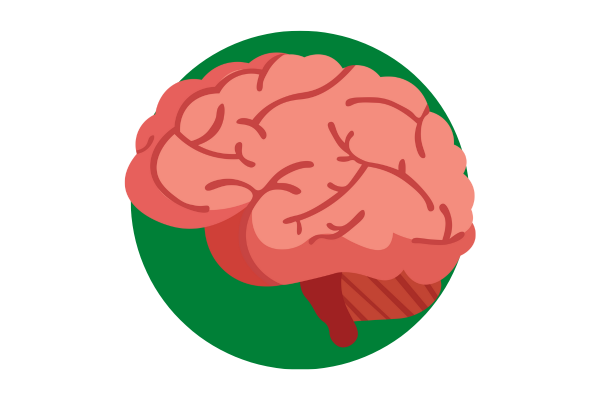Overview
Background: Functional dyspepsia (FD) is a common disorder of the gut-brain interaction with a population prevalence of around 7%. The previous British Society of Gastroenterology Guidelines for dyspepsia were published in 1996.
What’s new?: Since then, there have been considerable advances in our understanding of the pathophysiology of FD, and developments in the diagnosis, classification, and management of the disorder. The recent British Society of Gastroenterology guidelines on the management of functional dyspepsia appraise and summarise up-to-date evidence to inform clinical practice.
Clinical impact: The guideline provides comprehensive, practical, and evidence-based recommendations for the diagnosis and management of FD.
Introduction
- A diagnosis of FD is based on the Rome IV criteria. These define FD according to the presence of the cardinal symptoms of epigastric pain or burning, and post-prandial fullness or early satiation.
- FD is divided into two subtypes depending on the predominant pattern of symptoms – epigastric pain syndrome or post-prandial distress syndrome (PDS) – but these frequently overlap.
- Symptoms alone cannot distinguish FD from organic disease, such as peptic ulcer disease. However, an oesophagogastroduodenoscopy (OGD) is normal in around 80% of cases, meaning that most people with dyspepsia have FD as the cause of their symptoms.
- Moreover, most organic diseases identified at OGD, such as gastritis or peptic ulcer disease, could have been successfully treated with empirical medical management, e.g., testing for, and treating H pylori, or prescription of acid-suppressing drugs.
- Upper gastrointestinal cancer is rare in those with dyspepsia undergoing an OGD, accounting for less than 0.5% of cases.
Diagnosis and Investigation
History
- Doctors should be aware that most patients with dyspepsia will have FD.
- Clinical history should focus on eliciting the cardinal symptoms of dyspepsia and screening for alarm symptoms, such as weight loss or haematemesis.
- A drug history should enquire about medication that can cause gastric irritation, e.g., non-steroidal anti-inflammatory drugs, or that affects gastric motility, e.g., opiates.
- Questions should elicit relevant family history, focusing on inflammatory bowel disease, coeliac disease, and upper gastrointestinal cancer.
- Patient ethnicity should also be considered. The prevalence of upper gastrointestinal cancer is higher among people of Southeast Asian origin and the threshold for investigating with an OGD should be lower in this patient group.
Investigation
- Patients with dyspepsia should be tested for H pylori infection by checking a stool antigen, or with a breath test.
- In those aged 55 or older, a full blood count should be checked as there is some association between an elevated platelet count and the presence of upper gastrointestinal cancer.
- Overlap between FD and irritable bowel syndrome (IBS) is common. Patients with IBS symptoms should have serological testing for coeliac disease.
- The majority of patients with dyspepsia do not need an endoscopy. If no other upper gastrointestinal alarm symptoms or signs are reported, an urgent OGD should only be requested in patients with dyspepsia aged 55 or older with weight loss, or in those aged 40 or older from an area at an increased risk of gastric cancer or with a family history of upper gastrointestinal cancer.
- A non-urgent OGD should be requested in any patient aged 55 or older with treatment-resistant dyspepsia, or dyspepsia with either nausea or vomiting or an elevated platelet count.
- In patients with dyspepsia, abdominal pain, and weight loss who are aged 60 or older, an urgent CT scan should be considered to exclude pancreatic cancer.
Management
Lifestyle advice
- There is little evidence to support lifestyle advice besides a single trial of aerobic exercise for FD. Nevertheless, regular exercise is recommended for patients with FD.
- Patients will often report avoiding dietary triggers for their dyspeptic symptoms, such as spicy food or alcohol. However, there is no evidence for specific diets in FD and restrictive eating should be avoided due to the risk of malnutrition.
First-line management
- All patients with dyspepsia should undergo testing for H pylori infection and receive eradication therapy if positive.
- If this fails to resolve symptoms, patients should receive a trial of empirical acid suppression with either a proton pump inhibitor or a histamine-2 receptor antagonist.
- Prokinetics can be used to treat symptoms of PDS; however, there are practical difficulties with this approach due to the limited availability of suitable drugs and concerns about side effects, particularly with prolonged use.
Second-line management
- If patients fail to respond to first-line management, they should be offered treatment with a gut-brain neuromodulator. Evidence supports the use of tricyclic antidepressants, such as amitriptyline, commenced at low doses and titrated based on clinical response.
- There is no evidence for the use of selective serotonin reuptake inhibitors, e.g. sertraline, in FD.
- Selective norepinephrine reuptake inhibitors, e.g., duloxetine, may be useful in other painful disorders, but there is no evidence for their use in FD.
Psychological treatments
- Psychological therapies, including cognitive behavioural therapy or hypnotherapy, may be efficacious treatments for global symptoms in FD.
Severe or Refractory symptoms
- A multidisciplinary support team should be involved in the care of those with severe or refractory FD. The emphasis is on minimising risks of iatrogenic harm and it is important to avoid opioids or unnecessary surgery in this patient group.
- Once organic disease has been excluded, anyone with severe or refractory FD presenting with weight loss should be assessed for eating disorders and disordered eating. The early involvement of a dietitian in the care of these patients is important to avoid an overly restrictive diet and the risk of malnutrition.
This article is mapped to the following JRCPTB learning objectives:
- Understand the clinical management of patients with ulcer and non-ulcer dyspepsia
- Knows the range of organic and non-organic causes of dyspepsia. Be aware of current BSG and NICE guidelines for selecting patients for investigation. Know the significance of alarm symptoms.
Please email comments or suggestions to Dr John Ong [email protected], Trainee Online Editor, Web Education Team.
Author Biography

Dr Christopher Black is a Consultant Gastroenterologist at Leeds Teaching Hospitals with a keen interest in disorders of gut-brain interaction. Dr Black completed his PhD in irritable bowel syndrome at the University of Leeds and has published widely in the field of functional bowel disorders. He is the joint first author of the 2022 BSG guidelines on the management of functional dyspepsia.
Q&A
-
D
The patient describes chronic dyspepsia symptoms and there are no alarm symptoms or concerning features. The diagnosis is functional dyspepsia, specifically post-prandial distress syndrome.
-
E
In the absence of alarm symptoms or other features of concern, an endoscopy is not indicated. Prior to any trial of empirical treatment, the patient should be tested for H pylori and receive eradication therapy if this is positive.
-
A
Although the patient has been referred for an OGD, this is not indicated in this case because the patient has typical symptoms of dyspepsia and there are no alarm symptoms. It would have been sufficient to have tested for H pylori using a non-invasive test, such as checking a faecal antigen. Although the OGD is normal, he remains symptomatic and should be offered further treatment. There is no evidence for a low FODMAP diet in functional dyspepsia. Prokinetics can be used for treating functional dyspepsia, but there is concern about the prolonged use of domperidone causing cardiac side effects. A trial of acid suppression with a proton pump inhibitor is, therefore, the best answer.
-
C
Second-line treatment of FD is with gut-brain neuromodulators, specifically tricyclic antidepressants. Both amitriptyline and nortriptyline are tricyclic antidepressants, but these drugs should be initiated at low doses in FD and, therefore, nortriptyline 10mg at night is the best answer.
CME
Chronic Intestinal Pseudo-Obstruction
28 October 2024
Cyclic Vomiting Syndrome
03 October 2023
- Black CJ, Paine PA, Agrawal A, et al. British Society of Gastroenterology guidelines on the management of functional dyspepsia. Gut 2022;71:1697-1723.
